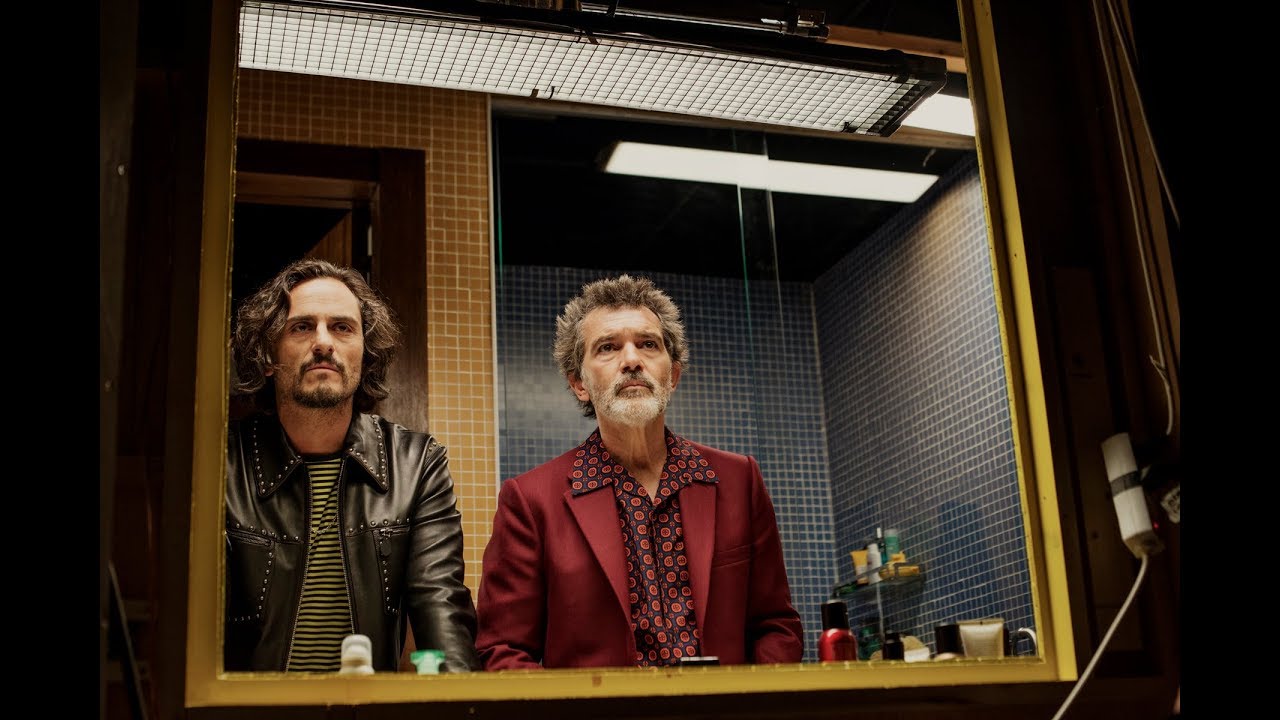
Viva Almodovar! If that opening didn’t clue you in, I am a huge fan of the work of acclaimed Spanish film director Pedro Almodovar. His filmmaking is an extravagant blend that is both wondrously idiosyncratic and entertainingly melodramatic; capped off with a colourfully vibrant eye. Even his supposedly disappointing films have won me over time, like my sloppy review of Almodovar’s last film Julieta should be re-scored from 2.5 stars to a score of 4 stars.
A long three years later, we now have his latest film, Pain and Glory. The film marks another with actor Antonio Banderas as well as actress Penelope Cruz. Saddled with a story that has a metatextual subtext as well as all the pet themes that are still ripe with melodrama, will Pain and Glory be another winner for Almodovar?
Banderas plays Salvador Mallo, a washed-up film director who is stuck in a creative rut due to his severe health issues as well as his lack of motivation, leading him into a state of depression. During his time of ennui, he reflects on his life, his loves and his films.
The film then goes back in time to Salvador’s childhood, where he was raised, in poverty, in a cave modeled into a house by his doting mother (Penelope Cruz). In the present, a reunion with an actor, Alberto Crespo (Asier Etxeandia), he has long been estranged from leads to an addiction to heroin. His recollection of his memories will then culminate into an epiphany that will make him realize that there might be some hope out there for him after all.
As you can expect, the story is told in a non-linear fashion, with flashbacks and flash-forwards, similar to Almodovar’s prior film Broken Embraces. Thanks to the story structure, the film exists as a character study of Salvador and, in a more surprising fashion, what is one of the most personal and self-reflective of Almodovar’s work yet.
There’s no mistake that the character of Salvador is a loose version of Almodovar himself, complete with a similar hairstyle and, according to interviews, Banderas wearing his clothes and Salvador’s apartment is in fact Almodovar’s real-life home. On paper, the film could have been insufferably self-indulgent and navel-gazing. Fortunately, Almodovar reins his melodramatic indulgences (except in an animated sequence where Salvador explains his medical ailments) and doubles down on character.
The first chapter set in the present involves Salvador reconciling with his past via his cinematic work and all that is associated. This is where the film is the most spirited, as the rest of the film becomes more meditative as it goes on. Led by a wonderfully sleazy performance by Asier Etxeandia, the film becomes very amusing as it pokes fun of Almodovar’s passion for film as well as adding credence in Salvador’s depressive state, particularly when he shares a common interest with Alberto via drug use.
The next chapter involves Salvador reuniting with a past lover Federico (a compellingly longing Leonardo Sbaraglia), in which the two fondly talk about their past. This is the point in the film where the pace slows down and becomes the most tranquil moment that Almodovar has done in recent years, blurring one’s perception as to whether this is a moment that actually happened to Salvador (or Almodovar for that matter).
The story then flashes back to the past, showing Salvodor at a young age. While those scenes may seem incongruous, yet they are the most rewarding scenes in the film, leading to a fantastic sendoff that meshes both the nostalgic and the metatextual; the past and the present.
We see Salvador during his childhood in the village of Valencia in the 1960s, where his amusingly thrifty father sets up the family home in a cramped white cave, much to his mother’s chagrin (an always stellar Penelope Cruz) along with other working-class migrants. Here, we see Salvador’s passion in literature grow as well as his first glimpse of his inner sexuality.
The last chapter is where Salvodor comes to terms with his past turmoil via his mother (a lovely Julieta Serrano) and his failed promise to her. The most beautiful moments in the film are during the simple interactions between the two, leading to much gentle teasing, witty banter and an emotional crescendo that hits Salvador like a ton of bricks.
All of this builds up to a spectacularly expressive and poignant work that would not be successful without the contributions from Almodovar collaborators like Alberto Iglesias’ beautifully wondrous score and cinematographer Jose Luis Alcaine’s colorfully vibrant visual eye. And last but definitely not the least, a fantastic Antonio Banderas, who anchors the film with his understated and nuanced performance, that conveys regret, drive and hopelessness; all within a single expression.
Make no mistake, as unruly as the film sounds (amusingly evident from a dialogue exchange, when someone asks Salvador what genre is his film about) Almodovar knows exactly what he is doing here and Pain and Glory definitely ranks as one of his best.
![]()
![]()
![]()
![]()
![]()
FIVE STARS (OUT OF FIVE)
Pain and Glory is currently showing at Sydney Film Fest, with screenings on the 15th and the 18th of June.
